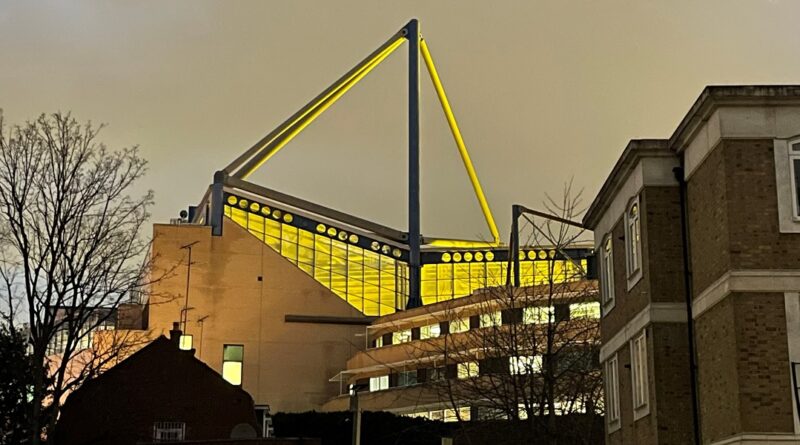Are pyro and pitch invasions legal?
From the official FSA.Org website:
Ahead of the new season a number of Football Supporters’ Association member groups have asked us to pull together a guide outlining the law when it comes to pyro and pitch invasions. Read on…
Sections:
Firstly, this article isn’t really about the rights or wrongs of celebrating on the pitch or letting off smoke bombs and flares in stadiums. But it is an explainer on the law as it stands AND an honest assessment of dealing with supporters who find themselves in the criminal justice system after breaking the law.
It’s obviously been a big talking point in recent seasons and there’s been a lot of messages from the football authorities discouraging both pitch invasions and pyro.
Despite this we’re not convinced that all supporters realise how serious the consequences can be for those who break the law at the match – this isn’t always popular among those who want pyro legalised but we’ll give it a go as it is an important message.
When individual supporters are charged with pitch invasions or pyro use we often pick up the pieces explaining that yes, it is against the law, and yes, it could have serious consequences for your employment and educational opportunities – and if you are banned it will affect when you can travel on holiday abroad.
It’s never a nice conversation and we’d rather we didn’t have to do it at all.
Pyro
We know that many fans who use pyro might have positive intentions, to liven things up and help the atmosphere (as seen in some European matches), but the law doesn’t care about that, the law says you are committing a criminal offence:
- If you are in possession of any pyro (ignited or not);
- At any time during a match;
- And you’re in any area where the match can be viewed (e.g. the stand).
The second pyro offence is if you are “entering or trying to enter” a football match. We have known fans who have been arrested well before the turnstiles on the basis they are suspected of ‘trying to enter’ the match.
We do think there’s a lack of understanding around pyro and the law in general. We see their use framed in a positive context at Glastonbury, and even in matchday programmes, so it’s understandable that some people might think their use is allowed. But it definitely isn’t.
There were 168 arrests in 2021-22 for this offence according to the Government’s stats and it’s worth noting the law doesn’t differentiate between flares, smoke bombs or fireworks.
Over the past decade we’ve spoken to supporters themselves as well as distraught parents and anguished partners who fear jail time for their loved ones. A prison sentence is rare, but it has happened before – the maximum sentence for these offences is 3 months imprisonment. Ending up in court with a criminal record, the risk of being in the press and in many cases, a football banning order, you have to ask, is it worth it?
Pitch invasions
Pitch invasions have been a regular occurrence, especially towards the end of season in recent times – although it’s worth saying that most supporters stay in the stands as they want to see the players celebrating, not fellow fans wandering about taking poorly framed selfies.
While there might have been a tradition of celebratory incursions in decades past, many of those took place before it was a criminal offence to enter the pitch.
Except in the case of an emergency, we don’t think there’s any reason for supporters to enter the field of play. Here’s why:
- It’s illegal and punishments can be very severe – We know that many thousands of fans over the years have entered the field of play with nothing but good intentions in a moment of celebration. But in the eyes of the law it doesn’t matter – it’s illegal and the law doesn’t discriminate. You could get a very long club ban, a criminal record and a Football Banning Order. More on those below but they are far more serious than a simple club ban.
- It’s not fair on players – football without fans is nothing but football without players ain’t up to much either – we have to listen to their voices too. We’ve talked to the PFA and they understand that 99.99% of fans have nothing but good intentions but players are understandably worried about that one idiot getting to them. Players and managers have a fundamental right to leave the pitch without being attacked or antagonised.
- Wider consequences – There’s an unwritten behavioural pact that we all benefit from – stay off the pitch and crowd management restrictions will be a much lighter touch. If that pact breaks down football will be worse for us all as rules will tighten. We’ve seen clubs have ground capacity reductions forced upon them while alcohol sales around stadiums or netting laid out across the first few rows aren’t impossible. All things that make matchdays worse and that’s before you even get to nuclear options like full stadium closures or points deductions.
It is also an offence to enter the area ‘adjacent’ to the pitch. This means the perimeter of the pitch which may have advertising boards or walls/barriers marking this banned area. Most stadiums have signs up making it clear where the boundaries surrounding the pitch are. Take care not to fall foul of this law otherwise you could find the joy of celebration quickly turning to despair as you’re marched away by stewards and handed over to the police.
What is a Football Banning Order?
Football Banning Orders (aka FBOs) were first introduced in 1989 by the Football Spectators Act and were originally intended to prevent violent and/or repeat offenders attending football matches here and abroad.
There’s an important distinction to be made between clubs bans and FBOs too. The former is, in effect, a private business banning you from their premises. A total waste of a season ticket, and you’ll not see your team in person for a while, but that’s more or less it.
FBOs are much, much more serious and can be imposed by a court following conviction. The minimum FBO is three years and up to five years for this offence. The minimum FBO for any fan sent to prison is six years up to ten years.
If you get a FBO you must surrender your passport when the England/Wales football team or your club play overseas. Most FBOs restrict your freedom of movement on matchdays and you can be banned from your team’s city centre. Imagine not being able to go shopping on a Saturday or abroad for a holiday because you once ran onto the pitch?
That’s how severely a FBO can impact your life.
Specialist legal advice
Sometimes specialist legal advice will be required, such as when a supporter is arrested, and we refer those cases to solicitors who have a track record going back many years, having represented hundreds of supporters during the time they have worked with the FSA.
Football Law Associates have had a long standing working relationship with the FSA since 2008, assisting countless supporters over the years.
Football Law Associates specialises in representing football supporters who require advice and assistance at the police station or court. Representation at the police station is free under the Legal Aid Advice & Assistance Scheme and some supporters will be eligible for free representation at court. They offer free initial phone consultations so fans can get advice on their case, with no obligation.
If you would like a confidential and free call with one of their solicitors please call 0333 939 0063 or contact via Football Law Associates.
- Was this info helpful? The FSA is by fans, for fans – join the FSA for free via thefsa.org.uk/join
‘Chelsea Supporters Group’ can also be found on Twitter and Facebook



